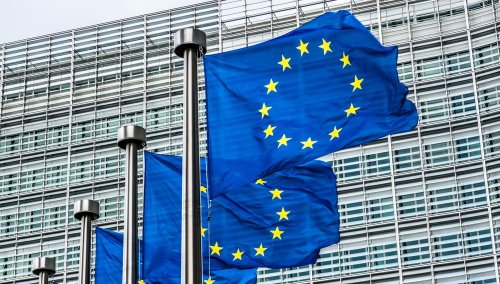The European Commission has published a draft "CBAM Implementation Regulation" regarding the reporting obligations and rules of the CBAM carbon import adjustment mechanism.
The document contains information on detailed commitments and a provisional methodology for calculating embedded emissions released during the production of a number of energy-intensive goods, S&P Global said.
It is noted that the European Commission is holding public consultations on the new rules. Until July 11, business representatives, scientists and the public will be able to send comments and feedback.
The article emphasized that the transitional stage of the implementation of the carbon tax begins on October 1, 2023. CBAM will apply to imports of energy-intensive goods, namely iron, steel, cement, aluminum, fertilizers, electricity and hydrogen, as well as indirect emissions under certain conditions.
The European Commission explained that at the first stage companies will only have to report on emissions. And the carbon tax will be phased in from 2026 to 2034 at the same rate as the end of free EU ETS allowances.
The material emphasized that CBAM is called push European industry towards significant decarbonisation without compromising other geographies that do not have carbon costs.
It is noted that the European Commission applies a gradual approach with some flexibility regarding the calculation of embedded emissions from imports. This will give manufacturers time to adapt to this mechanism in a predictable way. Thus, during the first year of implementation, companies will have a choice of reporting in three ways:
- full reporting in accordance with the new methodology (the EU method, which will become unified from January 1, 2025);
- reporting based on equivalent national systems of third countries;
- reporting based on reference values.
"The EU's CBAM will have far-reaching effects on global trade and the wider energy transition. Many in the industry believe the mechanism will push exporting countries to accept domestic carbon pricing, while some may challenge the measure at the World Trade Organization (WTO) on protectionist grounds ", the article says.
Analysis by S&P Global Commodity Insights found that Canada, Brazil, South Africa and Turkey would be most vulnerable to the mechanism, with iron and steel by far the biggest target sector.
Earlier, EcoPolitic wrote, that on April 18, the members of the European Parliament approved agreements on emissions trading system reforms (ETS), the Carbon Import Adjustment Mechanism (CBAM) and the creation of the Social Climate Fund (SCF).
As EcoPolitic previously reported, European carbon import adjustment mechanism CBAM can be a source for compensation for eco-damages, what Russia did to Ukraine during the full-scale war.





